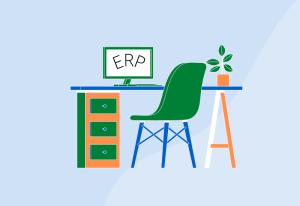
Enterprise Resource Planning (ERP) is a software system that helps organizations manage their business processes and operations. It is designed to integrate and automate a company’s core business functions, including finance and accounting, human resources, inventory and supply chain management, customer relationship management, and more. Here are some of the main functions that ERP systems are used for:
- Streamlining operations: ERP systems provide a centralized platform for managing all aspects of a company’s operations, making it easier to track and manage processes, reduce manual effort, and streamline workflows.
- Improving data accuracy: By integrating data from various departments and functions, ERP systems help eliminate duplicate data and ensure accuracy and consistency across the organization.
- Enhancing decision-making: ERP systems provide real-time access to data and analytics, enabling executives to make informed decisions based on accurate and up-to-date information.
- Increasing efficiency: ERP systems automate repetitive tasks, reducing the time and effort required for manual processes and improving overall efficiency.
- Enhancing customer service: ERP systems provide customer relationship management (CRM) functionality, enabling companies to manage customer interactions and improve the overall customer experience.
- Facilitating compliance: ERP systems provide a framework for ensuring compliance with industry regulations and standards, making it easier for companies to manage and report on compliance-related activities.
Overall, ERP systems are used to improve business processes, reduce costs, increase efficiency, and provide better visibility and control over operations. By implementing an ERP system, companies can streamline their operations, improve data accuracy, enhance decision-making, increase efficiency, enhance customer service, and facilitate compliance with industry regulations and standards.




